Solar Water Heater
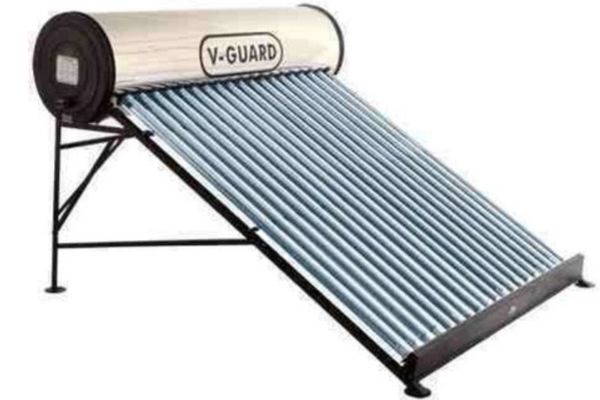
Solar water heating (SWH) is the conversion of sunlight into heat for water heating using a solar thermal collector. A variety of configurations is available at varying cost to provide solutions in different climates and latitudes. SWHs are widely used for residential and some industrial applications. [1] A sun-facing collector heats a working fluid that passes into a storage system for later use. SWH are active (pumped) and passive (convection-driven). They use water only, or both water and a working fluid. They are heated directly or via light- concentrating mirrors. They operate independently or as hybrids with electric or gas heaters. [2] In large-scale installations, mirrors may concentrate sunlight into a smaller collector.
- You can install the Solar Water Heater on the roof of your House.
- Solar Water Heater consists Collector and Insulated Tank.
- The Cold Water in the Collector get heated up and collected in the Tank
- The Hot Water remains Hot for 24 hours
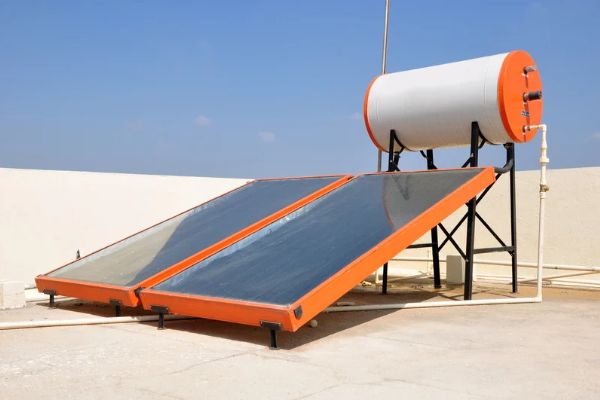
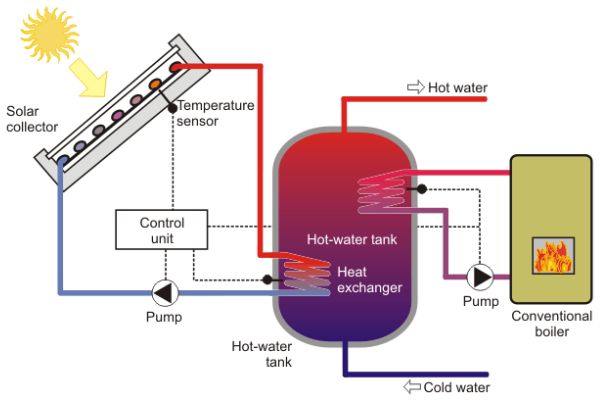
Benefits of Solar water heater
- Saves Gas Bill
- Save Electric Bill
- Environmental Friendly (one time investment)
- 24 Hours hot water
- Low maintenance
- Hot water even when electricity is not there. (during power cuts)
Application
- Independent houses, Towers, societies
- Industrial Applications - Automobile Industry, Chemicals & Fertilizer Industry, Textiles, Pharma & Food Processing Industry etc.
- Dairies
- Hotels, Clubs & Resort and Spa's
- Service Apartments, P.G. Accommodations, Hostels & Canteens
- Apartments, Villas & Farm House
- Hospitals & Nursing Homes etc.
Working principle of Solar Water Heater
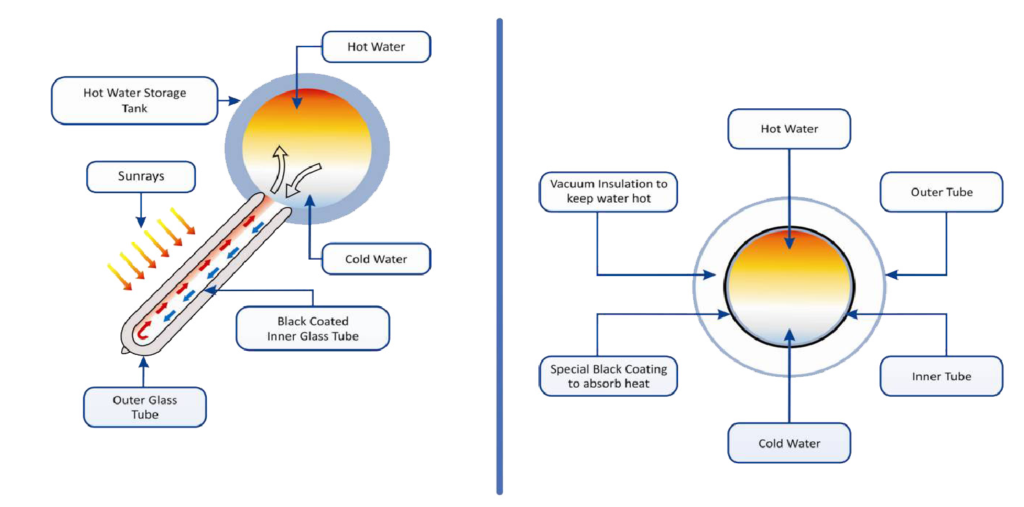
Types of Solar Water Heater
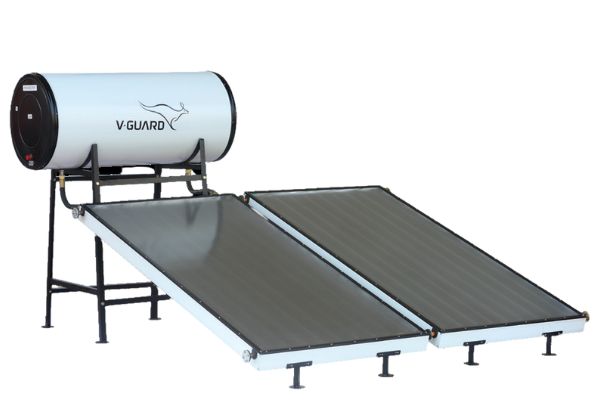
Flat Plate Collector Type (FPC)
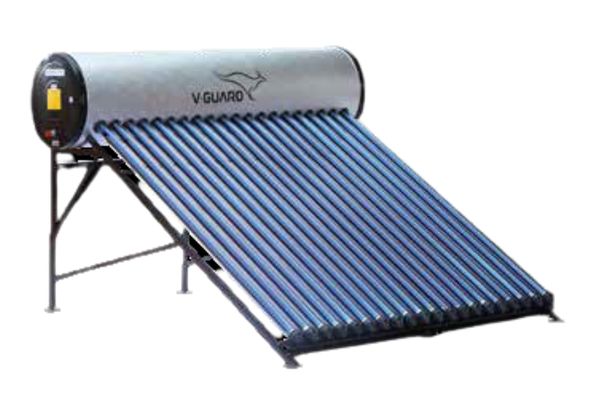
Evacuated Tube Collector Type (ETC)
Flat Plate Collector Type (FPC)
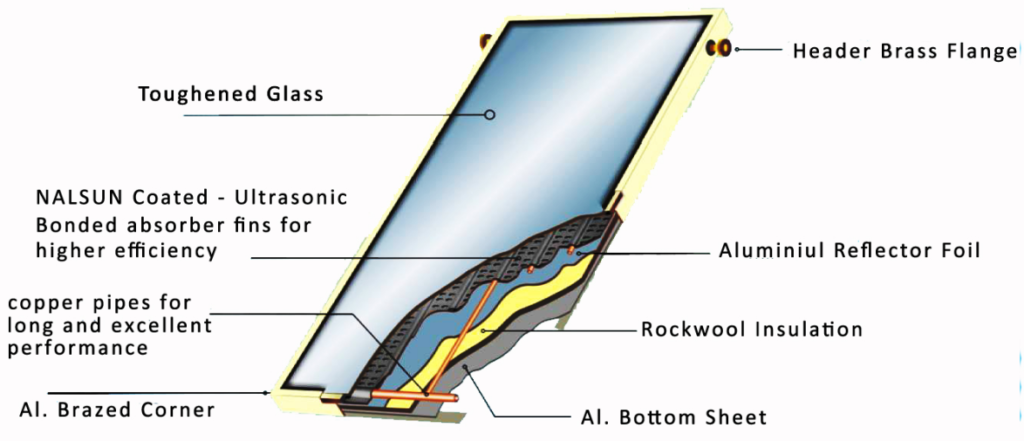
Benefits Of FPC
- Capture sunlight better as they have a greater surface area exposed to the sun at any time
- Are more efficient in transferring heat – up to 163% demonstrated in Australian conditions!
- Can be used in subzero temperatures
- Are durable and if a tube should be broken, it can be easily and cheaply replaced.
- Provide excellent performance in overcast conditions
- Require a smaller roof area than comparable flat plate collectors
- Do not have the same level of corrosion problems as flat plate collectors
Benefits Of ETC
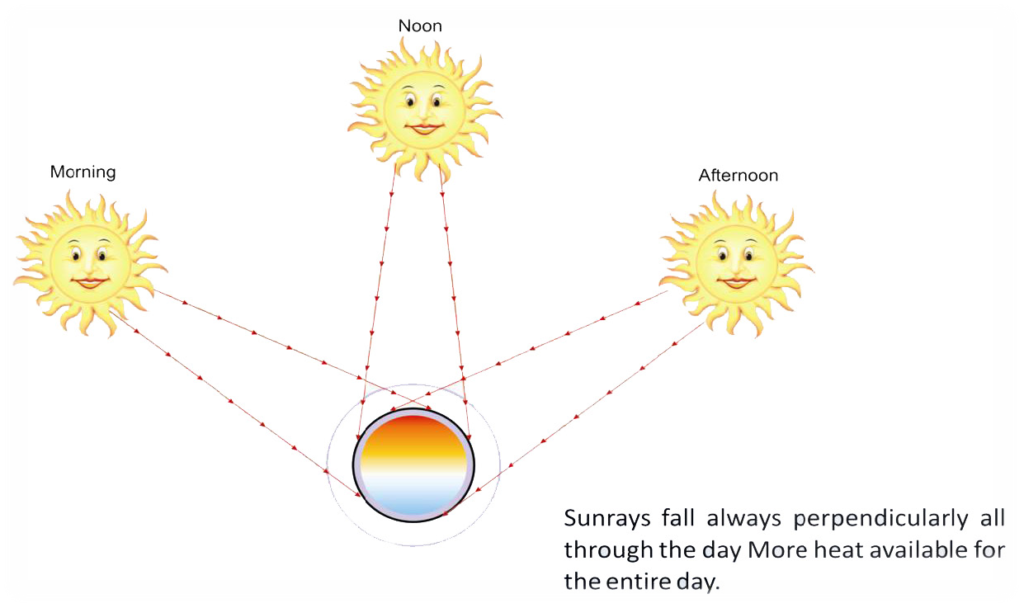
Authorize Distribution

